Featuring vibrant colors and unique shapes, corals can be a great addition to saltwater aquariums. And this article will share the torch coral types and care guides. So, if you’re ready to dive deeper into the aquatic world of corals and learn more about torch coral, then let’s begin.
Content Table
Torch Corals Types
Basic info about torch coral
Torch corals are LPS corals. They have long and flowing polyps or tentacles with colored and rounded tips. The tips enable torch corals to sting and capture prey, plus defend themselves from predators. Most torch corals are from Indonesia and Australia, such as Indo Hellfire Torch, Neon Green Tip Torch, and Holy Grail Torch. Usually, torch corals that are native to Indonesia possess long and thin tentacles with small tips. While the tentacles of torch corals from Australia are smaller and thicker, and their tips are bigger. Next, let’s take a quick look at torch coral.
| Family | Caryophylliidae |
| Scientific name | Euphyllia glabrescens |
| Common name | Wall, Octopus, Grape, Honey, Trumpet corals, Pom-Pom corals, Branch corals |
| Care Level | easy-moderate |
| Color | green, tan, cream, orange |
| Diet | omnivore |
| Maximum size | about 10 inches |
| Minimum tank size | 50 gallons |
| Temperament | aggressive |
| Tank placement | bottom & middle |
Torch corals types
After learning some basic information about torch corals, next, we will list some types of torch corals.
- Indo Hellfire Torch
- Neon Green Tip Torch
- NY Knicks Gold Torch
- Dragon Soul Torch
- Cotton Candy Torch
- Holy Grail Torch
- Reverse Tiger Torch
- Teal Tipped Cristata Torch
After that, we will cover three of the torch corals mentioned above.
1. Indo Hellfire Torch
| Brief introduction | Indo Hellfire Torch has purple tentacles and neon green tips | 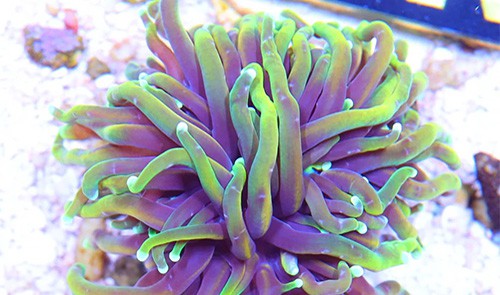 |
|
| Coral types | LPS torch coral | Tank placement | Bottom & Middle |
| Temperament | Aggressive | Water temperature | 72-78℉ |
| Care Level | Easy & Ideal for beginners | pH level | 8.1-8.4 |
| Light requirement | Moderate | Water hardness | 8-12 dKH |
| Water flow level | Moderate | Specific gravity | 1.023-1.025 |
2. Neon Green Tip Torch
| Brief introduction | Neon Green Tip Torches have light-brown tentacles and neon-green tips | 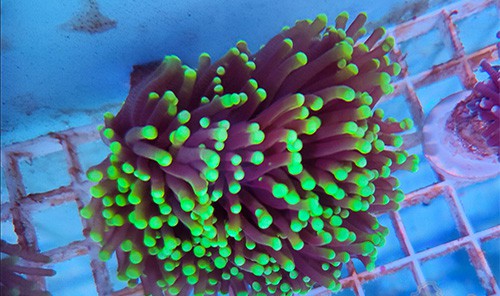 |
|
| Coral types | LPS torch coral | Tank placement | Bottom & Middle |
| Temperament | Aggressive | Water temperature | 74-78℉ |
| Care Level | Easy & Ideal for beginners | pH level | 8.0-8.4 |
| Light requirement | Moderate | Water hardness | 8-12 dKH |
| Water flow level | Moderate | Specific gravity | 1.023-1.026 |
3. Holy Grail Torch
| Brief introduction | Holy grail torches are not common, featuring light pink or yellow-green tentacles with purple or blue tips | 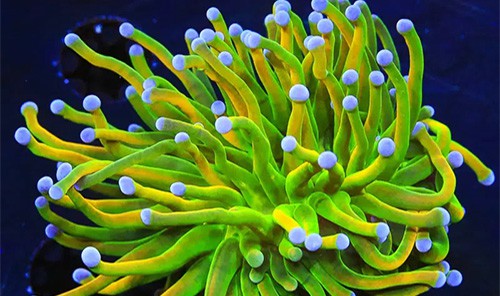 |
|
| Coral types | LPS torch coral | Tank placement | Middle |
| Temperament | Aggressive | Water temperature | 74-78℉ |
| Care Level | Moderately difficult | pH level | 8.0-8.4 |
| Light requirement | Moderate | Water hardness | 8-12 dKH |
| Water flow level | Moderate | Specific gravity | 1.023-1.026 |
Torch coral frag
You need a saw. After retracting the coral’s tentacles, you can cut through the torch coral’s branch. Then dry the bottom and let them stand still for 1–2 minutes. After a few minutes, you can put them back in aquariums.
Are Torch Corals Hard to Keep
Whether torch corals are hard to keep or not depends on the torch coral types. But most torch corals are relatively easy to keep and are excellent alternatives for beginners and experienced aquarists. However, great water conditions and stable water parameters are vital for torch coral aquariums. Because torch corals are sensitive to water fluctuations. The following are water requirements for torch corals.
- Water temperature: 73-84℉ (23-29℃)
- pH level: 8.1-8.5
- Water hardness: 8-12 dKH
- Specific gravity: 1.023-1.026
- Calcium level: 380-450 ppm
- Magnesium level: 1300-1400 ppm
- Ammonia level: 0 ppm
- Nitrite level: 0 ppm
- Nitrate level: less than 10 ppm
How to Choose a Good Torch Coral
In general, torch corals from Indonesia and Australia should be your first choices, like Indo Hellfire Torch and Neon Green Tip Torch. Besides, you can observe the tentacles, which should freely swing with the water flow. Furthermore, check the sides of torch corals to confirm whether there is symbiotic flesh or not. If the answer is negative, just take a look at other corals.
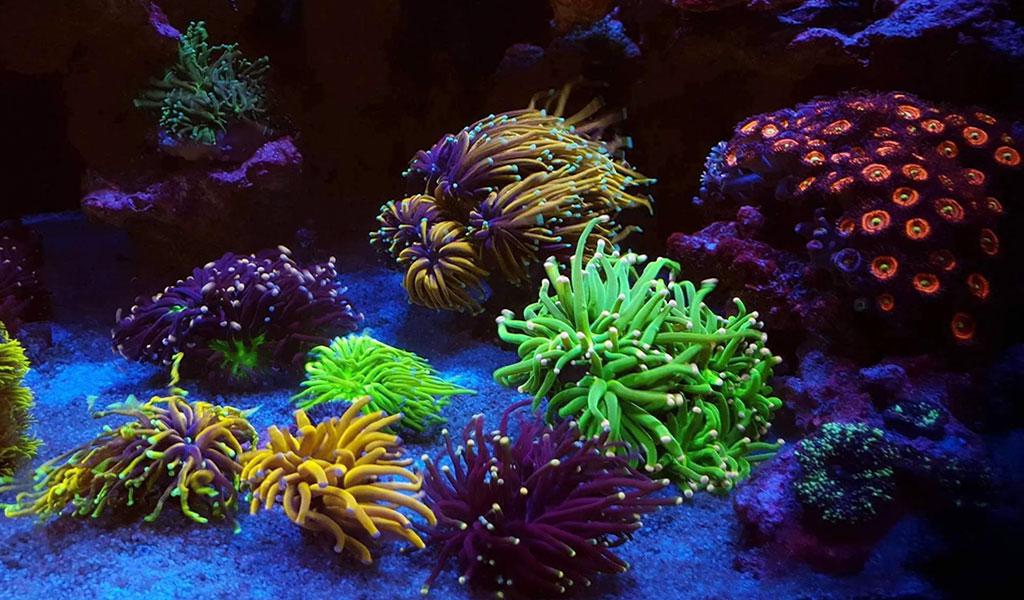
Torch Coral Care
Tank size and location
The minimum tank size for torch corals should be 50 gallons at least. And it is recommended to leave adequate space between torch corals and other aquatic pets, because the torch corals may attack other lives nearby. Also, it is best to locate torch corals in a place with moderate light and water movement. For instance, the bottom and near the middle of the tank.
Light requirements
Low to medium light would be perfect for torch corals. The excellent PAR value can be 50-150, and lighting time can reach 9–12 hours daily. If your torch corals shrink or turn white, it may be the result of too intensive light or too long lighting time. By the way, the bluetooth clip on light is a great option for torch coral tanks. You can freely set the RGB value and lumen of the light according to the torch’s need, and the adjustable settings of color, brightness, and temperature can fulfill your tank requirements.
Water flow requirements
Torch corals fancy low to medium water flow rate, which should be 20 times turn over per hour. In this case, an inverter wavemaker will help you a lot. It is a 3400 GPH wavemaker pump with an LED controller, ideal for 75–200 gallons of freshwater and saltwater tanks. It can be paired wirelessly to lead more wavemaker pumps through one controller for tanks of more than 200 gallons.
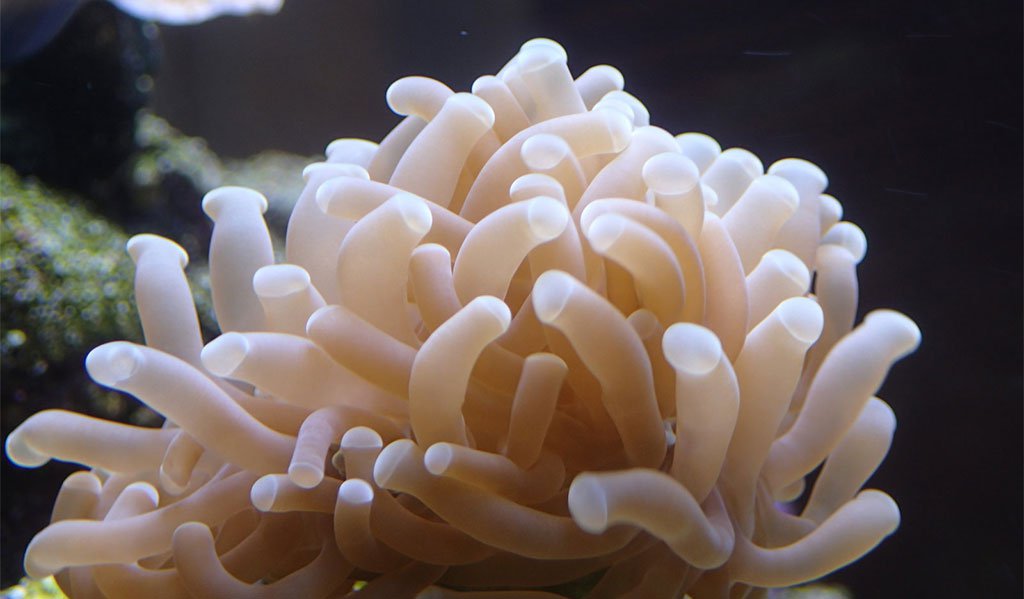
Diet requirements
The zooxanthellae inside LPS corals can convert light into a food source. Nonetheless, additional feeding is needed. You can feed phytoplankton, shrimps, small fish, liquid food, and pellets or flakes rich in protein. Also, you should supplement trace elements, like calcium and magnesium. Additionally, never overfeed. Generally, 1–2 times each week is feasible.
Torch coral tank mates
(1)Compatible fish
- Blue Chromis
- Orange Spotted Goby
- Kole Yellow Eye Tang
(2)Compatible corals
- Micromussa genus
- Acanthera genus
Disease treatment
Sometimes, torch corals may suffer bacterial infections. Without timely treatment, infected corals would die. Take Brown Jelly as an example. Once infected, there would be brown filaments, mucus, and brown bubbles on the surface of torch corals. It may be caused by poor water quality, open wood on torch corals, or other factors. In the face of Brown Jelly, what can you do? Throw it away or try to tackle the disease? You can cut off the infected part, and then do water changes plus increase the water flow rate. Also, you can soak the infected corals in water containing iodine and then in water with penicillin.
How to Grow Torch Corals Fast
Torch corals grow slowly. Generally, they produce 1–2 heads every 3–7 months. The growth rate of Torch Corals depends on several factors such as light, water flow, and chemical stability. Stable water conditions are key to good growth. Consequently, you should monitor the water parameters and test salinity and specific gravity regularly. Also, feeding some meaty food a few times each week is helpful to grow torch corals fast, like mysis shrimp and brine shrimp.
Key Takeaways
In a nutshell, most torch corals are easy to keep. Adding torch corals to your marine aquarium can greatly improve the ornamental values. Just keep in mind, to maintain great and stable water conditions. Plus, water flow and light are vital. For more LPS corals, you can go to The Easiest LPS Coral for Beginners.
That’s all for today. For additional information or interesting facts about torch corals, welcome to share with us in the comment. We’re happy to receive your sharing. Finally, thanks for reading.
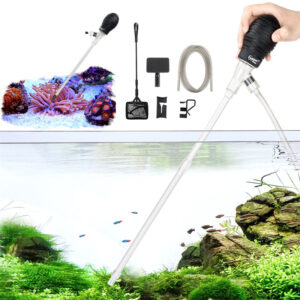
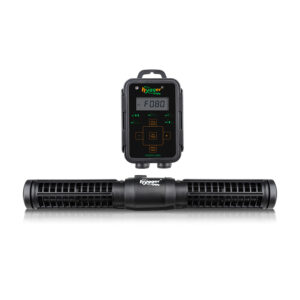
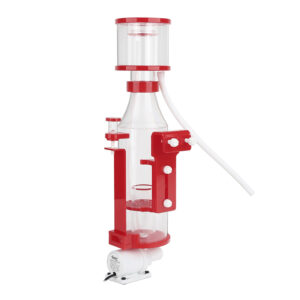
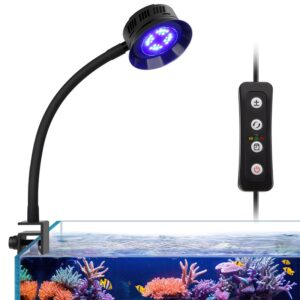
Leave a comment